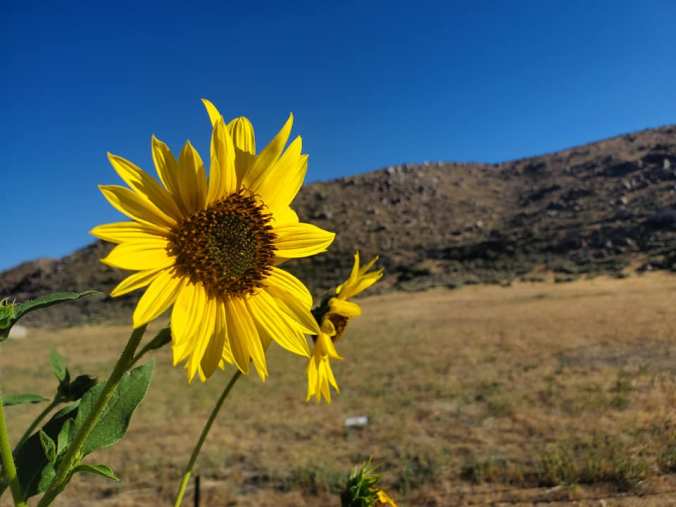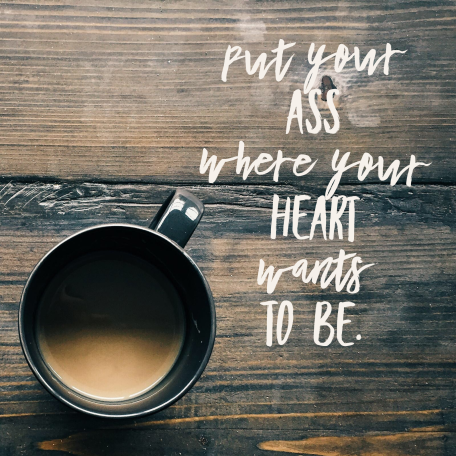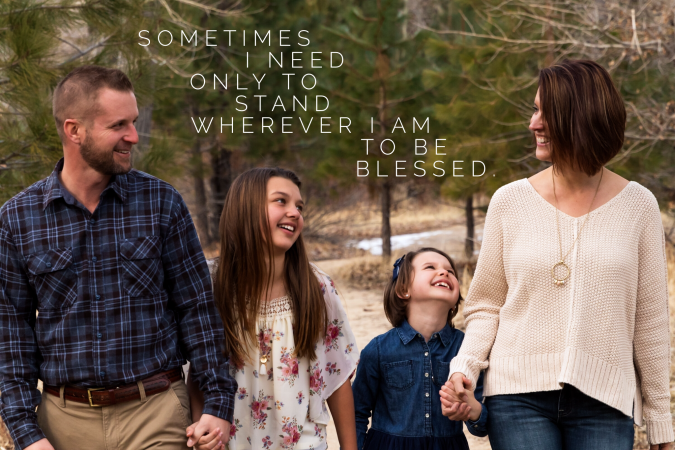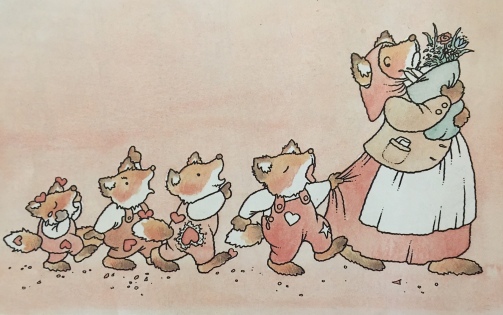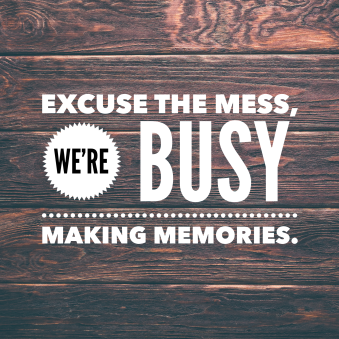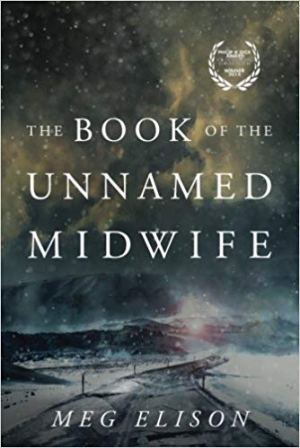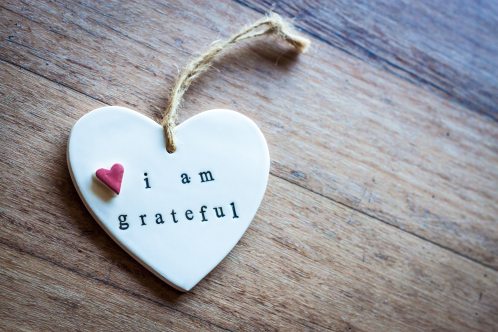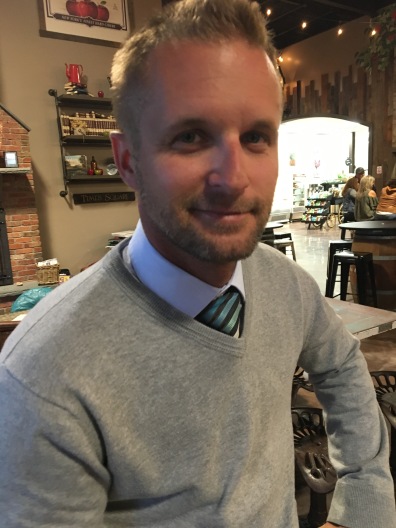Once upon a time, people woke up and read the newspaper. On weekends, perhaps they’d do the crossword puzzle or share the funnies with their kids. As time marched on, people stopped sitting down to breakfast and instead of the paper, they switched on the TV to listen to the news and hear the weather forecast. Today, upon waking, we reach for our phones to silence our alarms, and shortly after, start scrolling through various news feeds before beginning our day.
It was during this ritual on Monday morning, when I came across this tweet by @thebradking.

Reading through the comments sparked nostalgia for my own upbringing. Born in 1978, I’m on the cusp of being a Millennial, but lugging my sister’s Brother typewriter with me to college cemented my GenX status.
Due to the popularity of his tweet, Brad King went on to post this: “GenX Tribe: Breaking Bones and Other Stories of Walking it Off,” which got me thinking…
While I have never broken a bone, my daughter has. As part of the GenZ cohort, hers was a similar story to many of those shared by the GenXers responding to King’s tweet.
It was my first day back at work for the new school year. Our children wouldn’t begin until the following week, so I had hired our babysitter and given her permission to walk to the park with the kids. My daughter decided that rather than walk, she’d Skip-it there.
When the Skip-it, along with many other 80’s and 90’s toys, recently made a come-back, I thought it was a clever marketing idea. I got a kick out of watching the mom in Target trying out a Pogo Ball in the aisle while her kid, trapped in the cart, continued playing on his tablet.
I never loved the Pogo Ball, but the Skip-it was my jam, which explains why, when I saw them being sold again, my kids I had to have one. In hindsight, it was an expensive mistake.
The walk to the park from our house is half a mile, downhill. If you’ve ever used a Skip-it, you know that momentum is key. If you ever Skipped-it while walking to the park…You probably haven’t because that is an utterly ridiculous idea that only a nine-year-old would have. Had I been home, I would have looked at her like she was crazy and told her no, crushing her spirit like only a mother can. But since she was in the care of a fifteen-year-old (partially developed prefrontal cortex and whatnot), this is what happened:

As my daughter tried to keep the Skip-it in motion, and because she was also headed down a hill with a spinning ball hooked to her ankle, she ended up going faster and faster until, at full speed, she tripped herself. Putting out her hands to break the fall, she came crashing down on her own wrist.
When I came home from work, the babysitter told me about the spill. I asked some questions, checked it out, and found her arm a bit swollen, but it wasn’t bruised and she wasn’t crying or howling in pain at my touch. She moved it around for me, and so, we did what any parent would do: We took her to the hospital.
Did that sound right to you? Of course we didn’t take her to the hospital! We gave her an ice pack. We wrapped it in an Ace bandage. We kept an eye on it and asked her how it felt. Meanwhile, we took her to golf practice where she swung her clubs for an hour, and we took her to soccer practice where she ran drills with the ball. We took her to the water park where she went down slides and swam in the wave pool. We took her to a birthday party (at another park) where she practiced trying to make it all the way across the monkey bars. We did all this for two whole days. It wasn’t until day three that we took her to the doctor, and only because the swelling hadn’t gone down yet, not because she was complaining.
She had broken her wrist in two places requiring that she get a rather large cast that went from her hand all the way up to her armpit. After eight weeks in that sucker, she got a smaller cast for the last four weeks, thankfully getting it off just before we went on vacation.
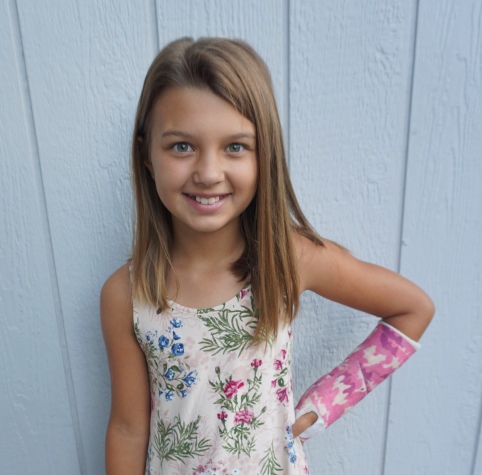
The comments on Brad King’s Twitter feed don’t just talk about broken bones that weren’t attended to, but being left outside to play for hours (unsupervised), being latch-key kids (after school and all day long in the summertime), and taking care of one’s own college admission packets (gasp!). There are stories of riding bikes without helmets, and sitting unbuckled in the back seat of the car—in the middle so as to have a better view. Parents smoked in the car and in the house, feeding their children bologna sandwiches on Wonder Bread.
As a kid, I never owned a bike helmet. To this day, I still forget to buckle when I’m in the back seat. I drove myself (eight hours) to my college orientation, pre-Siri. And while my mother was always a fan of whole wheat bread, I have had my fair share of bologna sandwiches.
For GenXers, this was our childhood, and despite the few commenters who claim it was negligence and abuse, we’re no far worse because of it.
My mother laughs about how, when we were babies, she used to hold me and my sister on her lap while my father drove the car. She’d take our little baby arms and make us wave to the neighboring cars when they were stopped at a red light. (Britney Spears did something like this once circa 2006 and was publicly shamed for it.)
My mother will tell you that for many of the parenting decisions they made, they just didn’t know any better, and I think that’s the god’s honest truth.
When my father lit up a Winston while in the car with us, he wasn’t purposefully ignoring the dangers of second-hand smoke; his knowledge was limited to a Surgeon General’s warning that smoking may be hazardous to one’s health. While those warnings sometimes addressed pregnant women who smoked, they never mentioned the three kids who were riding backwards in the third seat of the station wagon making faces at the cars behind them.

{via knowyourmeme.com}
Partway down King’s Twitter feed, I found a comment that read, “This thread completely sucks. Parents, do better.” But as Maya Angelou (and my own mother) said, people do better when they know better, and we (mostly) know better now.
Regardless of what we know, we are also a product of our upbringing. The fact that my mother continues to hang onto a biscuit cutter that she’s had since before I was born (wooden handle with chipped red paint that likely contains lead) is probably because she was raised by parents from the Silent Generation who fixed things when they were broken (although, not their children’s bones) and rarely threw anything away.
Evidence of this frugality showed up the other day in my own home when I cut up a cucumber for my daughters to eat with their lunch. After snacking on only a few slices, my youngest threw the rest in the trash. Hearing the wet thud it made as it hit the bottom of the garbage can triggered something in me and I lectured her for way too long about the starving children in Africa. Whether it was because of my mother’s upbringing or because, as a single mom, she often didn’t have the resources to go to the store and pick up all that was needed for dinner, I was raised to never waste food. In my home, we eat our leftovers. I may end up feeding some to the dogs, but rarely will you see food in my house go to waste, even if it is a 33-cent cucumber.
The “Parents, do better” comment is typical of the self-righteous, judgmental online culture we face today. My parents (like most parents) were trying to do better. When my mom held us on her lap, she probably thought that it was safer than having us roll around in the back seat. Had the five-point harness been invented, I know she’d have used it.
With the advancement of technology, we have access to way more information than our parents ever did. With my firstborn, I spent hours online researching the safest forward-facing car seats. It wasn’t a question of which one we could afford, it was a question of which one was best, with every reviewer’s opinion weighing in.
Even when we’re not actively seeking it, online parenting advice often comes unsolicited. Take Jersey Shore’s Deena Cortese , for example, who was recently mom-shamed for a photo she posted of her newborn in his car seat on the way home from the hospital.
In the end though, the parents of today, just like the parents of yesterday, mostly defer to doing what feels right, and often, parenting the way our parents did isn’t such a terrible idea. (If you haven’t kicked your kids outside to play in a while, I highly recommend it.)
Despite which generation we belong to, no matter how much we learn or what we do, we’ll never perfect parenting. Nor will the perfect parent ever exist.
I hope the day comes when my daughters will reminisce about their childhood with each other like my sister and I do, or reminisce online with a group of strangers who belong to the same generational tribe. My youngest might laugh about that time I totally freaked out for her having thrown away half a cucumber. My oldest already sees the humor in how she spent several days with a broken arm before being taken to urgent care. My husband and I will chuckle too, especially when our children become parents themselves and get to experience what it’s like to be the ones making the judgement calls, because in the end, isn’t that really what parenting is all about?

FOR MORE LIKE THIS, FOLLOW ME ON READINGWHILEEATING OR LIKE MY PAGE ON FACEBOOK
